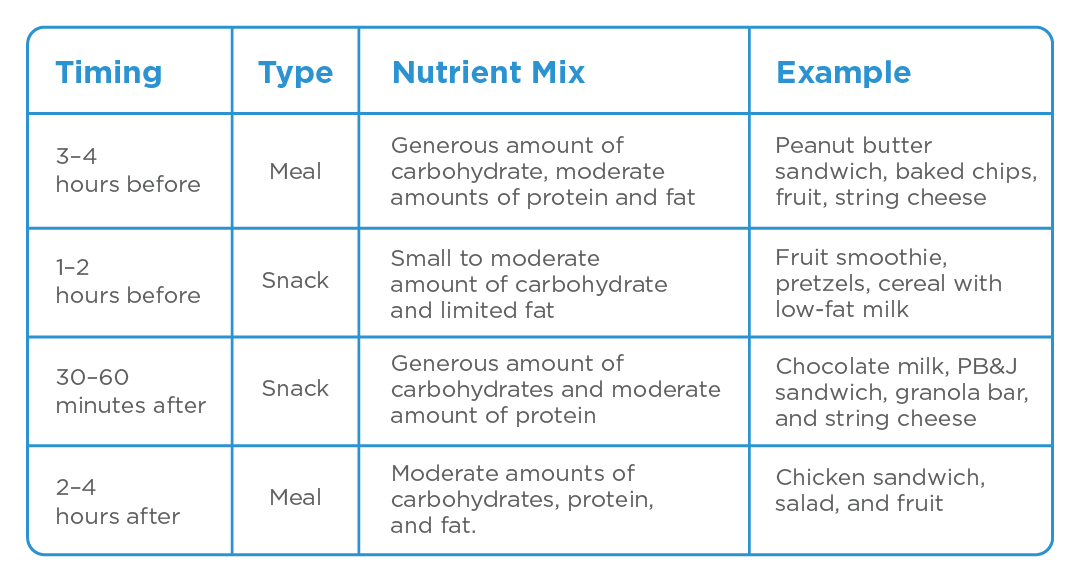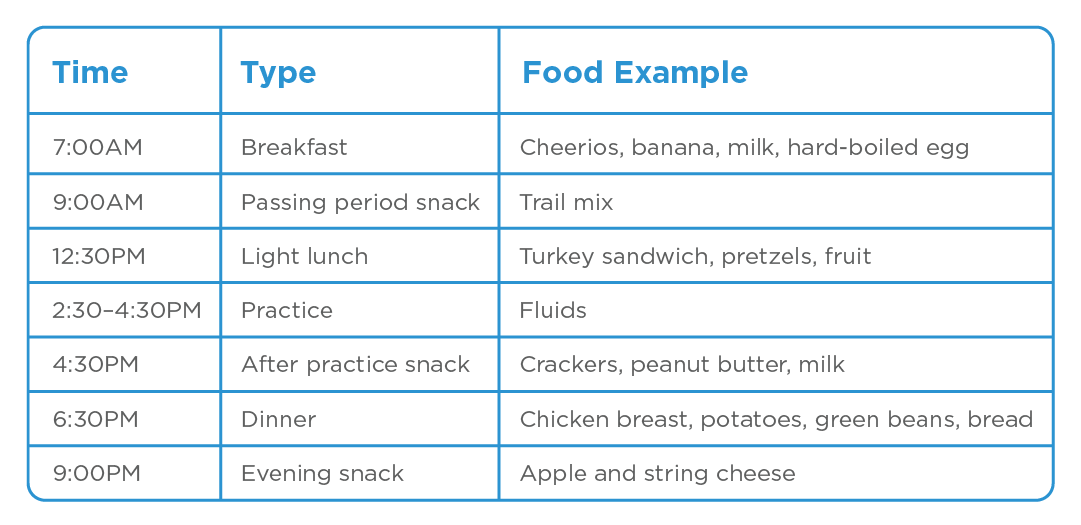Feb 21, 2024 /
Nutrition
By Melodyann Jones, MDA, RDN / Southpoint
Sports Hydration & Meal Timing
Proper hydration and fuel timing are important for sports performance. Without the right nutrients or even water loss as little as 2-3% of an athlete’s body weight can decrease athletic performance. Creating a plan for hydration and balanced eating before, during, and after exercise is key to getting the post out of training and optimizing performance.
Hydration is extremely important and impacts athletic performance. For activities lasting an hour or less, water is all that is needed. For events lasting longer than an hour, sports drinks can be helpful to replace electrolytes and carbohydrates.
The easiest way to calculate daily fluid needs is to remember: drink 1 mL for every calorie the body requires.
An easy way to ensure your athlete is drinking enough is to have a drinking plan that is laid out in three phases: before, during, and after exercise.
Dehydration can be serious and following the steps above can help avoid it. Signs of dehydration include dark urine, cramps, nausea/vomiting, and light-headedness.
Timing of meals and snacks can be especially difficult for teenage athletes whose school schedules determine when they can and cannot eat. Eating a large meal right before practice or competition can lead to gastrointestinal discomfort and not eating enough can lead to fatigue. General guidelines for eating before and after an event are listed in the table below.

For early morning practice, a snack before practice and full breakfast afterwards can ensure adequate energy intake. Below is an example of an eating schedule for a high school athlete with afternoon practice.

Remember, a balanced eating plan that supplies the right amount of fuel and fluid is key for sports performance. Be sure to check out our other sports nutrition blog on macronutrients and micronutrients for more tips.
©2025 Wasatch Pediatrics